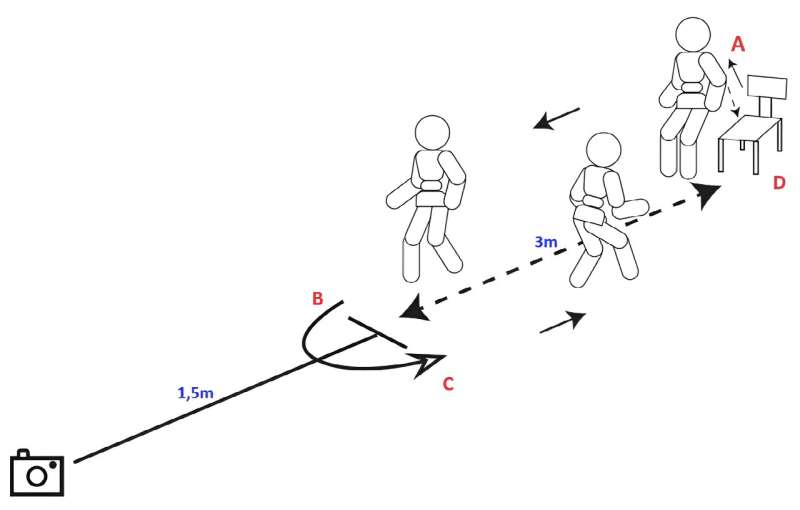This article has been reviewed according to Science X's editorial process and policies. Editors have highlighted the following attributes while ensuring the content's credibility:
fact-checked
trusted source
proofread
Novel methodology allows for remote testing of functional mobility and muscle strength in elderly patients with dementia

A study conducted at the Federal University of São Carlos (UFSCar), in the state of São Paulo, Brazil, shows that tests of functional mobility and muscle strength can be adapted so that they can be performed at home under remote supervision by health professionals, especially for older people with dementia. The telehealth protocol also involves training for caregivers.
Tests of functional mobility and muscle strength are widely used by physical therapists and geriatricians to evaluate aging, prescribe treatment or physical exercise, and analyze the effects of therapeutic intervention on older people.
"The results we obtained in the remotely supervised tests were reliable. The main contribution of the study is that it lays a foundation for assuring wider access to health care for older people with dementia. Telehealth sessions can be more frequent and enable health workers to track the patient's progress more comprehensively," said Larissa Pires de Andrade, a professor in UFSCar's Department of Physical Therapy and last author of the study published in the journal Geriatrics, Gerontology and Aging.
For Andrade, conducting functional mobility and muscle strength tests remotely is a valid way to provide a service to people who cannot afford to attend a clinic or lack the physical conditions to do so. It can also be useful in situations that prevent patients from leaving their homes, as was the case during the COVID-19 pandemic.
The study was part of the Ph.D. research of Carolina Tsen, first author of the article. It was also part of a larger project on telerehabilitation led by UFSCar's Healthy Aging Research Laboratory (LaPeSI).
"Confirmation that these tests, which are so common in clinical practice, can be conducted remotely is the first step in our research, which includes telerehabilitation for older people with dementia," Andrade said.
In the study, 43 people with clinically diagnosed dementia took functional mobility and muscle strength tests remotely via video calls, with the help of caregivers. Standard rehabilitation and physical therapy tests were used, including the Short Physical Performance Battery (SPPB), which assesses balance, lower extremity strength and gait speed, among other functional mobility parameters.
The researchers also adapted three other tests: the 30 Seconds Sit to Stand Test (STS 30), which assesses lower extremity strength; Timed Up and Go (TUG), which involves getting up from a chair, walking 3 m, turning around and returning to sit down, and is widely used to assess the risk of falls; and TUG Dual Task, in which the patient performs the TUG test while answering questions as a measure of cognitive performance.
The patients took the tests at home via an online platform. Caregivers were suitably prepared to administer them. A health worker participated remotely in real time to supervise the activity and answer any questions.
According to Andrade, taking these tests can be challenging for older people with dementia, either in a clinic or via video call, since memory loss, attention deficit and other kinds of cognitive impairment make it hard for them to understand what they are being asked to do.
"So in addition to caregiver training and preparation of a space in the home for the patient to take the tests, we had to adapt the verbal commands, making them simple and short, and including pauses so that elderly people with dementia can understand what's being asked of them. This was key to obtaining a satisfactory performance in the tests," she said.
More information: Carolina Tsen et al, Adaptation and reliability of tests of functional mobility and muscle strength using telehealth for older people with dementia, Geriatrics Gerontology and Aging (2024). DOI: 10.53886/gga.e0000087_EN




















